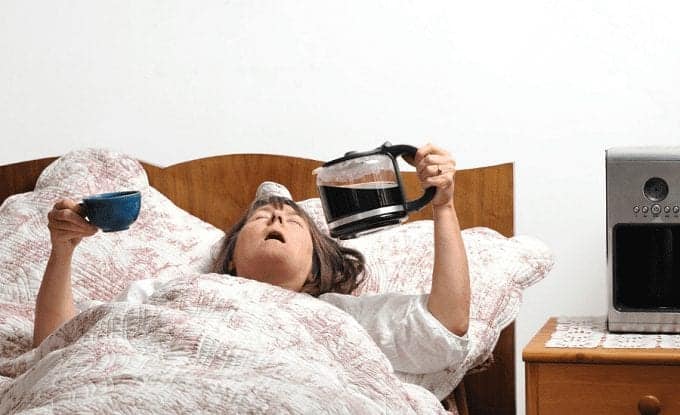How Much Coffee Is Too Much? What Coffee Lovers Need to Know
We all love our coffee, but overindulging isn’t always beneficial. As the saying goes, “too much of anything can be harmful.” You can consume plenty of coffee, but excessive intake might require taking a break from it. Drinking 6 cups daily (around 250ml each) could be excessive since it may slightly increase your risk of cardiovascular diseases. Interestingly, those who abstain from coffee or opt for decaf also face a slightly elevated risk.
This seems like one of those “damned if you do, damned if you don’t” situations! Essentially, it’s fine to enjoy your daily cups as long as it’s in moderation. Coffee remains an excellent way to lower the risk of type 2 diabetes and other ailments and may even help alleviate constipation.
The Health Benefits of Coffee Are Significant
Adenosine is a molecule in your brain that’s produced from when you wake up until you fall asleep; more adenosine means less active nerves. Caffeine works by regulating adenosine levels in your brain by blocking it. So if you’re someone who feels jittery after lots of coffee, you’ll notice that you can still stay alert watching TV shows late into the night.
If you’re struggling to sleep at night, it might be due to an excess amount of caffeine in your system preventing drowsiness.

One thing we do know for sure is that caffeine can mimic insomnia-like conditions, which can be quite problematic. If you’re experiencing any of the following symptoms, it might be linked to your caffeine consumption:
- More frequent work or household accidents
- Feeling drowsy during midday but alert at night
- Trouble falling asleep
- Depression or anxiety
- Sudden bouts of anger or irritability
- Waking up in the middle of the night or before your alarm (multiple times each night)
While these symptoms aren’t exclusive to increased coffee consumption, they could serve as warnings. However, it’s important to note that other factors like snoring, sleep apnea, and room temperature can also contribute to insomnia. Differentiating between caffeine and coffee itself is crucial as well.
A common misconception is that coffee is merely liquid caffeine. In reality, coffee contains three other primary components: chlorogenic acid, melanoidins, and diterpenes. The interplay among these four elements makes coffee distinct from tea and energy drinks containing caffeine. Although tea also contains caffeine, it does so in lower amounts compared to coffee. Tea leaves undergo minimal chemical changes apart from drying and sorting.
On the other hand, roasting coffee beans triggers various chemical reactions and modifications in molecules that set it apart from tea. Additionally, tea includes compounds like theobromine and theophylline that stimulate muscles differently than those found in coffee. Consuming over 400 milligrams of caffeine daily isn’t catastrophic—whether it’s from coffee or tea.
Caffeine boosts your spatial awareness and energy levels; thus, if you’ve had too much caffeine, you might consider running uphill for 30 minutes to burn some off. Alternatively—if you’re like me—just relax with your cup of coffee and forget about running altogether.
We’ve all had those days where we ask ourselves: “How many cups of coffee have I had today?” If you’re concerned about your intake, try staying mindful. However, an occasional increase in daily caffeine consumption won’t immediately impact your health negatively.
So how much coffee should you drink each day?

It’s recommended to keep your daily caffeine intake under 400 milligrams. To give you an idea, according to USDA’s FoodData Central, an 8-ounce (approximately 227 grams) cup of coffee has around 95 milligrams of caffeine.
Caffeine isn’t the only ingredient in coffee; nearing or hitting that 400-milligram cap could offer added perks. During roasting, coffee produces chlorogenic acids (a mix of caffeic acid and quinic acid), packing a punch with antioxidants. These antioxidants help your body in numerous ways, such as fighting free radicals. Essentially, coffee can be quite beneficial for you. It also aids in managing various diseases or conditions since antioxidants have anti-inflammatory properties.
Why Do Some Articles Demonize Coffee?
We’ve tackled “how much coffee is too much,” but you might stumble upon articles claiming it’s bad for you. Aside from insights from doctors and scientists backed by research literature, others don’t hold much weight. Negative headlines garner 63% more clicks than positive ones—a trend true even for neutral or thought-provoking titles like ours.
Scientific studies aren’t meant to be malicious; they’re often viewed as “revealing hidden truths.” In reality, these studies delve deeper into existing evidence and new discoveries. It’s easy to misinterpret scientific findings—especially when written by scholars for academic audiences—making them seem anti-coffee.
Can You Overdose on Coffee?
While overdosing on caffeine is possible, overdosing on actual coffee is nearly impossible—you’d likely experience severe stomach pain before reaching that point.
Caffeine comes in various forms—some natural and some processed or chemically altered. Seeing “made with real coffee” on an energy drink doesn’t guarantee it’s good for you. Marketers rarely highlight the natural ingredients; these drinks are loaded with extra chemicals and other caffeine sources—often at harmful levels—leading to potential caffeine overdose.
Unless you’re allergic or highly sensitive to caffeine, consuming too much coffee won’t be an issue.
What Happens If I Consume Too Much Caffeine?

If you’re allergic to caffeine, you’ll know it after just one cup. If your liver enzymes have the gene for caffeine metabolism, you might not notice anything until you’ve consumed a large amount of caffeine.
Your blood pressure will rise, making it more susceptible to worsening conditions, and you’ll experience systemic issues like elevated blood pressure.
Caffeine is metabolized by the liver in about 45 minutes before entering the bloodstream. Elevated caffeine levels in your body can last up to 9 hours or even longer in some cases.
When you’re dehydrated, you might also suffer from tension headaches and dry mouth at the same time. This can lead to constipation and excessive thirst, prompting most people to drink more coffee to quench their thirst. Too much caffeine can cause paranoid symptoms such as self-doubt, distrust of others, and a feeling that something is out to get you.
Keep in mind that these are extreme cases that occur when some individuals consume too much coffee for their own good.
